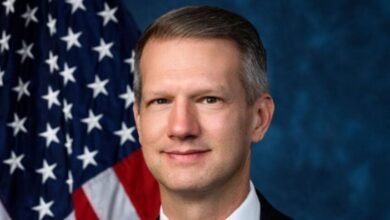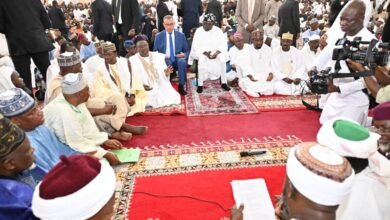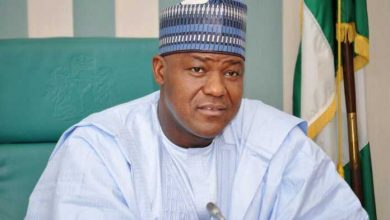News
Matawalle: Nigeria to Host West Africa’s International Centre for Electronic Navigational Charts

The Honourable Minister of State for Defence, Dr. Bello Muhammad Matawalle, MON, has announced the establishment of the International Centre for Electronic Navigational Charts (ENC) – West Africa Regional Office and Training Centre – to be hosted by Nigeria’s National Hydrographic Agency (NHA).
The announcement was made during his keynote address as Special Guest of Honour at the 2025 World Hydrography Day Conference, held at the Ladi Kwali Conference Hall, Abuja Continental Hotel.
Hosted by the Hydrographer of the Federation and CEO of the NHA, Rear Admiral Ayo Olugbode, the conference convened regional and international stakeholders to spotlight Nigeria’s commitment to hydrographic innovation, maritime security, and regional collaboration.
Minister Matawalle reaffirmed the Federal Government’s commitment to advancing maritime security, regional integration, and the sustainable use of Nigeria’s vast ocean resources. He described the new ENC Centre as a strategic step toward positioning Nigeria as a regional leader in hydrography, ocean governance, and maritime technology.
“This Centre is not just a facility; it is a symbol of Nigeria’s strategic intent to lead in maritime data, regional security cooperation, and economic transformation,” he declared.
“With this establishment, Nigeria joins the ranks of global ENC leaders such as the United States, United Kingdom, Brazil, and Australia.”
The Centre will be pivotal for chart validation, data distribution, and capacity development in the use of Electronic Navigational Charts—critical tools that support global maritime safety, port efficiency, and digital navigation. It is projected to generate between $9 million and $12 million annually through international maritime services and value-chain operations, aligning with Nigeria’s blue economy agenda.
Dr. Matawalle emphasized that seabed mapping is a strategic necessity, vital not only to national security but also to environmental and economic sustainability.
“It is on the seabed that our digital infrastructure lies, our energy corridors pass, and our marine biodiversity flourishes,” he said.
“Mapping this domain is critical to our economic survival, ecological responsibility, and sovereign defence.”
He further noted that the Centre would become a cornerstone of Nigeria’s ocean economy, facilitating the expansion of shipping lanes, development of offshore wind energy, and sustainability of marine ecosystems.
“Today’s milestone is not merely about charts and coordinates—it is about reimagining our oceans as engines of growth, resilience, and peace.”
The Centre is also expected to serve as a regional training hub, offering specialised programmes for hydrographers and marine scientists across West Africa. Initiatives such as student research competitions, expert-led workshops, and technical exhibitions will contribute to building the next generation of maritime professionals.
“Our youth are not just participants in this vision—they are its inheritors,” the Minister said.
“By equipping them with the skills and knowledge to manage and protect our maritime assets, we secure our future.”
He added that the Centre aligns with Nigeria’s broader defence and development strategy, which recognises hydrography as a cross-cutting enabler of national security, economic diversification, and global maritime cooperation.
This year’s World Hydrography Day, themed “Seabed Mapping: Enabling Ocean Action,” echoes the urgent global call for nations to map, monitor, and manage their marine spaces responsibly. Nigeria’s leadership, according to Matawalle, signals a renewed commitment to regional stability, environmental stewardship, and sustainable ocean development.
Concluding his remarks, Dr. Matawalle called on stakeholders to deepen their collaboration and reaffirm their shared responsibility for ocean protection and progress.
“Let us support hydrographic advancement not just as a scientific exercise,” he urged, “but as a defence imperative, an economic enabler, and a collective responsibility for the future of our oceans.”





